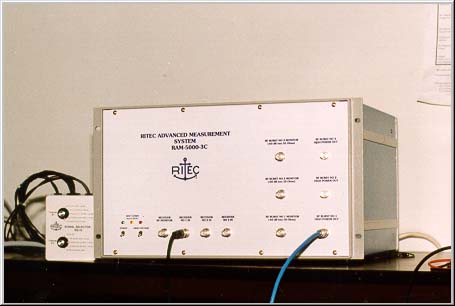|
|
|
|
|
RAM-5000 Computer Controlled High Power
Ultrasonic System analog signal processing. measurements of changes in ultrasonic velocity and attenuation. |
|
The RAM-5000 is a modular ultrasonic system designed to satisfy the needs of the acoustic researcher in materials science or advanced NDE. Its functionality is similar to the RAM-10000 but much of the circuitry has been redesigned for improved performance, the packaging is more robust, and care has been taken to satisfy international standards for electronic instrumentation. The RAM-5000 will also accept multiple gated amplifiers so that a wider frequency range can be covered by a single instrument. |
|
Its purpose is to transmit RF bursts of acoustic energy into a test piece, receive signals following the burst, and manipulate and analyze these signals in various ways. Examples include the determination of acoustic attenuation, velocity, stress, material texture, and a number of other physical properties. Gated- amplifier, high-power outputs are obtainable over a frequency range far in excess of one decade. Typical high-power (5KW) frequency ranges are 0.05 to 5 MHz and 0.5 to 7 MHz. At 1KW these ranges are extended to ~5 and just under 20 MHz respectively. The high power is particularly valuable when using electromagnetic acoustic transducers (EMATs). |
|
Various versions of the instrument may be chosen to meet the user's specific needs. The most popular configurations are the pulser-receiver and the full measurement system. |
